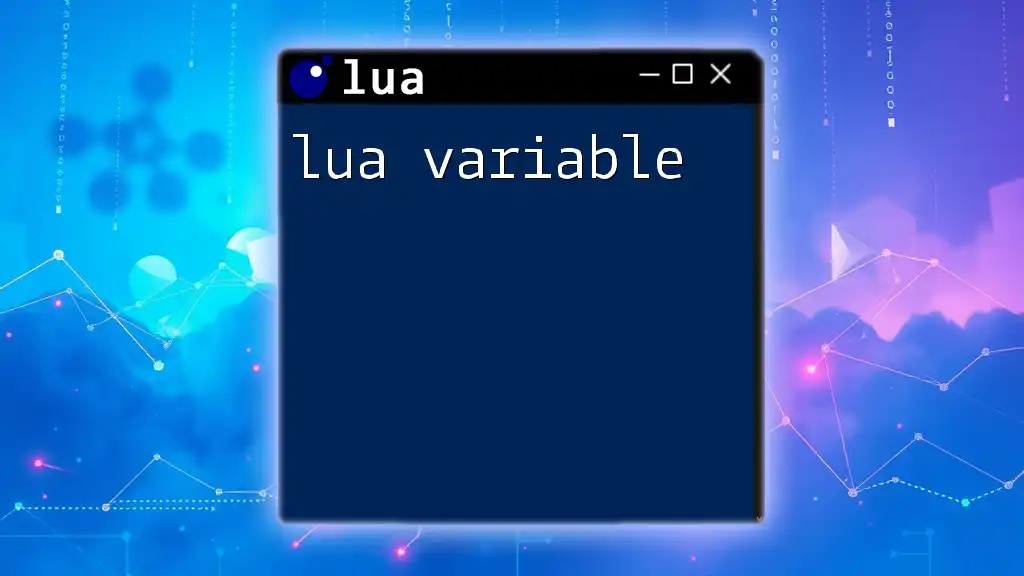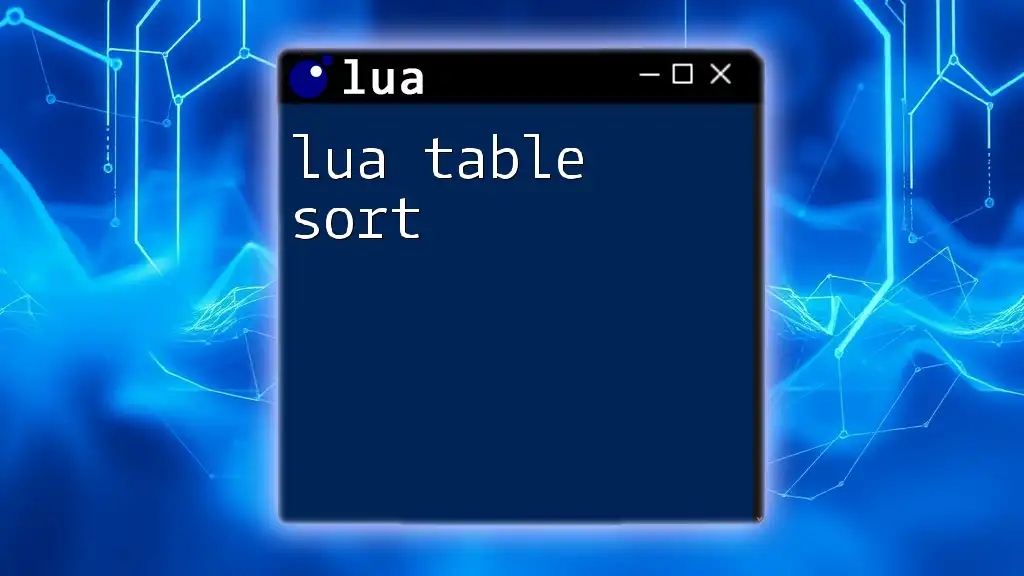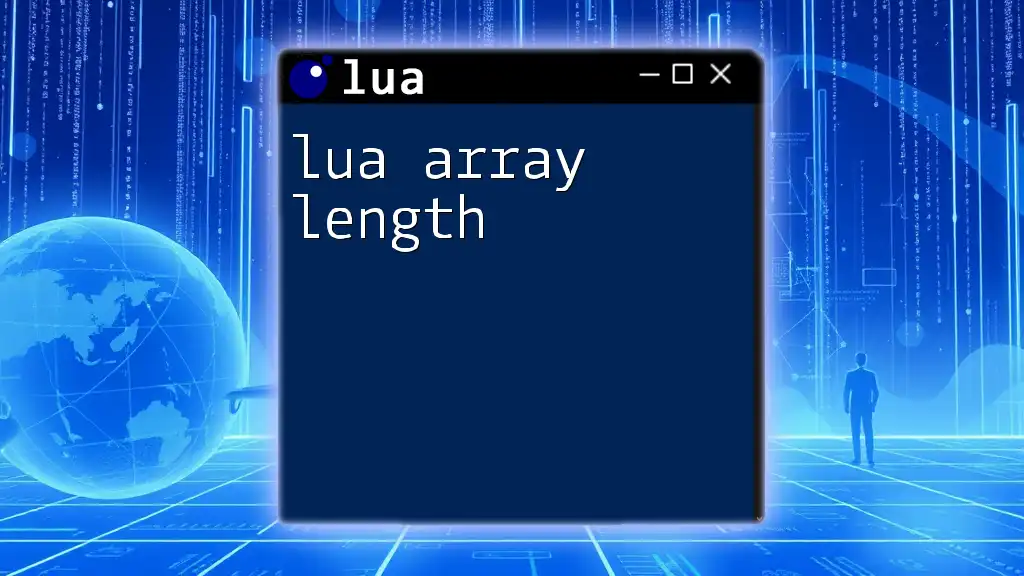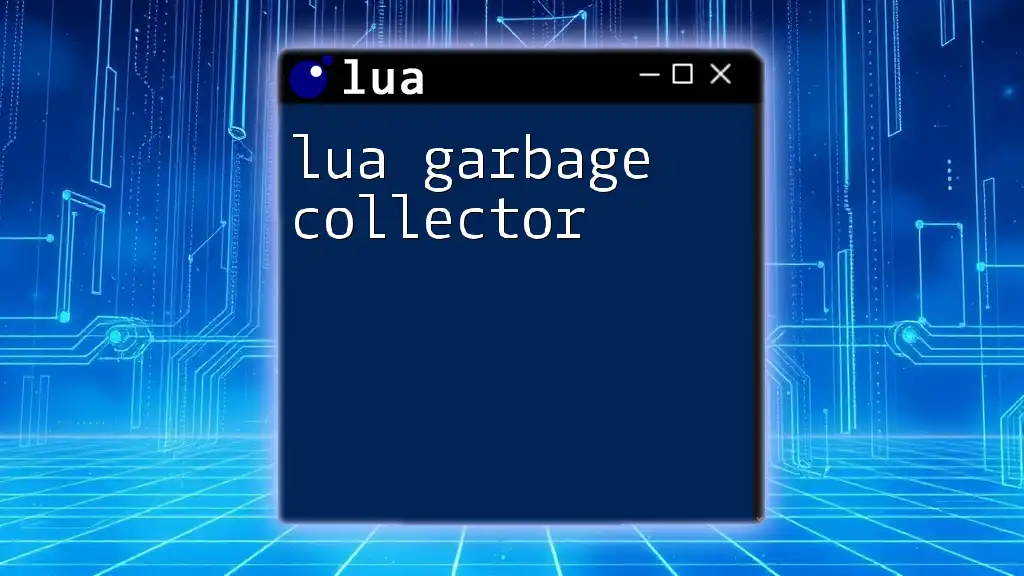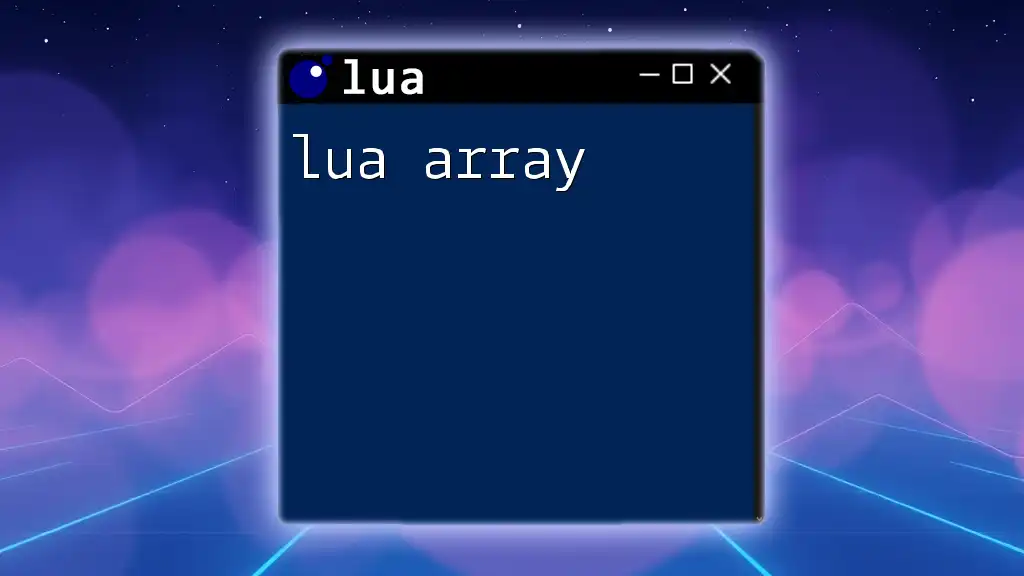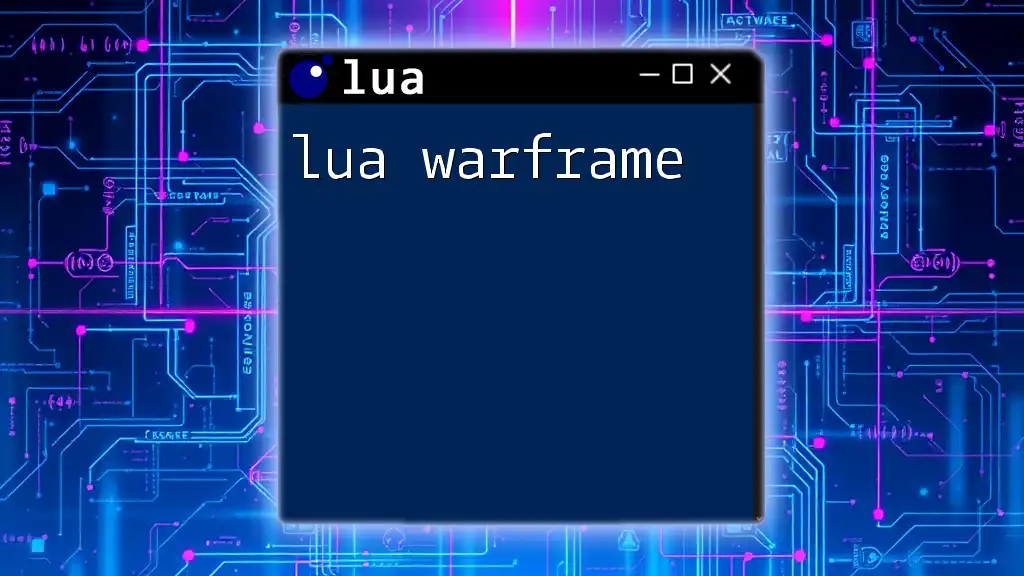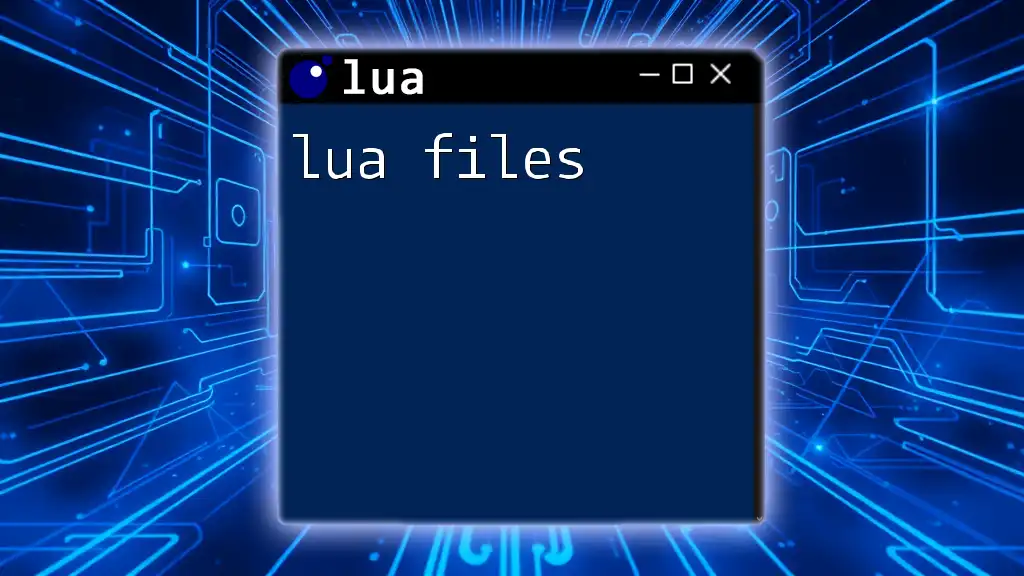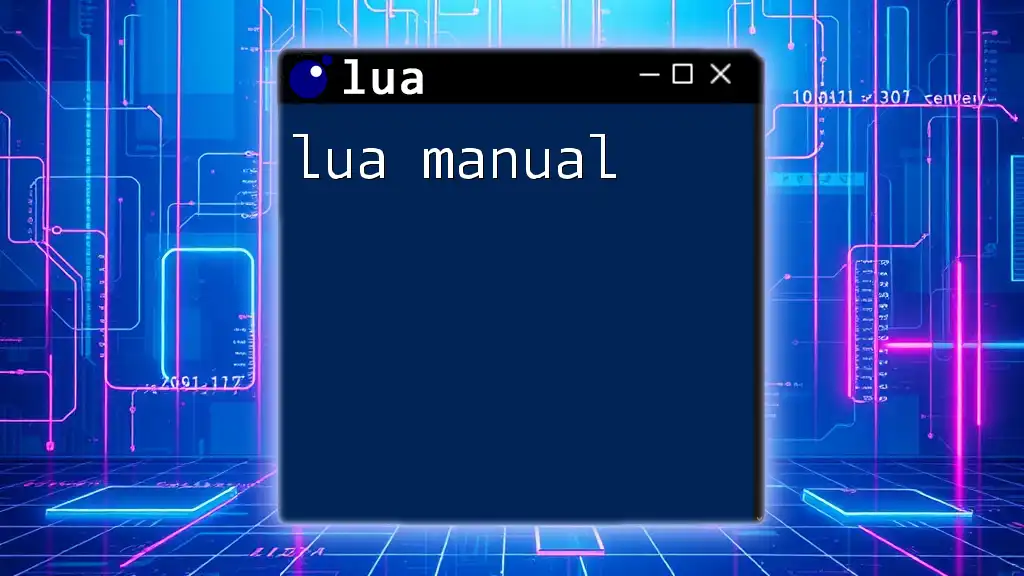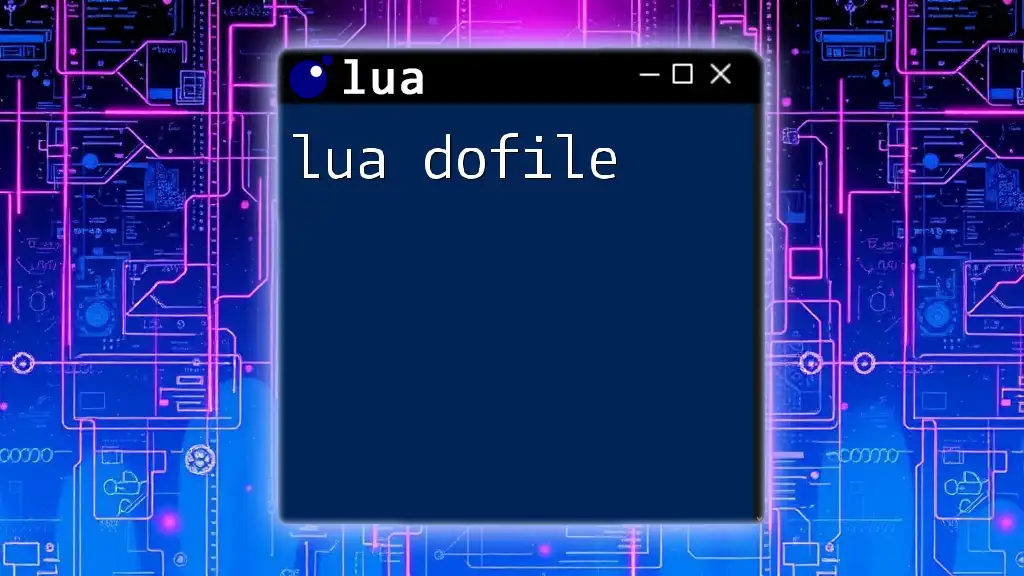In Lua, a variable is a container used to store data values, which can be easily manipulated and accessed throughout your script.
-- Example of declaring and assigning a variable in Lua
local myVariable = 10
print(myVariable) -- Output: 10
Understanding Lua Variables
What is a Variable in Lua?
In programming, a variable serves as a storage location for data that can change during the execution of a script. In Lua, these variables are versatile, allowing developers to write clear and efficient code. The primary purpose of a variable in Lua is to store information that can be retrieved and manipulated as needed, enabling dynamic behavior in your applications.
Types of Variables in Lua
In Lua, variables can be categorized as global or local, each serving distinct functions.
Global Variables
Global variables are accessible from any part of your program. They are ideal when you need to share data across multiple functions or files. For example, you can create a global variable like this:
myGlobalVariable = "Hello, World!"
print(myGlobalVariable) -- Outputs: Hello, World!
Using global variables can simplify your code, but excessive use can lead to unintended side effects, making your code harder to understand and maintain.
Local Variables
Local variables exist only within the block of code where they are defined. Their primary advantage is reducing the risk of variable name collisions and memory usage. For example:
function myFunction()
local myLocalVariable = "Hello, Local World!"
print(myLocalVariable) -- Outputs: Hello, Local World!
end
myFunction()
-- print(myLocalVariable) -- This would cause an error, as myLocalVariable is not accessible here.
Differences Between Global and Local Variables
The most notable difference between global and local variables is their scope. Global variables can be accessed from anywhere in your program, which means that any part of the code can modify their values. In contrast, local variables are limited to the scope in which they are declared, protecting them from unintended modifications by external functions and code blocks.
Using local variables is often recommended for performance reasons, as they take up less memory than global variables. Consequently, it's a best practice to use local variables whenever possible.

Declaring Variables in Lua
Syntax for Variable Declaration
Declaring variables in Lua is straightforward. The syntax typically consists of writing the variable name followed by an optional assignment of a value. For a simple declaration, you can do the following:
myVariable = "Some value"
This line creates a variable named `myVariable` and assigns it the string "Some value".
Assigning Values to Variables
In Lua, you can assign values of different data types to variables, including numbers, strings, booleans, and tables. Here’s an example of assigning various data types:
numberVar = 42
stringVar = "Hello"
booleanVar = true
tableVar = {key = "value"}
Each variable holds a different type of data, showcasing Lua's flexibility.
Multi-Line Variable Declaration
Lua allows you to declare and assign multiple variables in one line. For instance:
local x, y, z = 10, 20, 30
print(x, y, z) -- Outputs: 10 20 30
This multi-line declaration can make your code cleaner and more efficient.

Working with Variables
Changing Variable Values
One of the key features of variables is their ability to change. You can reassign a variable with a new value at any point in your script, allowing for dynamic manipulation of your data. For example:
myVariable = "Initial Value"
print(myVariable) -- Outputs: Initial Value
myVariable = "Updated Value"
print(myVariable) -- Outputs: Updated Value
Variable Scope
Scope refers to the region in your program where a variable is accessible. In Lua, a variable's scope can be either global or local. Understanding this concept is crucial because it affects how you manage data in larger applications.
Global vs. Local Scope
Global scope allows a variable to be accessed from anywhere in your code. In contrast, local variables are restricted to the block of code where they are defined. For example:
globalVar = "I am global"
function myFunction()
local localVar = "I am local"
print(globalVar) -- Accessible here
print(localVar) -- Accessible here
end
myFunction()
-- print(localVar) -- This would cause an error, as localVar is not accessible here.
This illustrates how scope dramatically influences variable accessibility.
Naming Conventions for Variables
Choosing the right names for your variables is essential for maintainability and readability of your code. Opt for descriptive names that reflect the variable's purpose, such as `userName` or `itemCount`, rather than vague names like `a` or `b`.
A recommended practice is to use camelCase or snake_case formats to enhance clarity, such as:
- `file_path` for file paths
- `user_count` for counting users

Special Variable Types in Lua
Tables as Variables
Tables are one of Lua's most powerful data types. They can be used as arrays, maps, or even objects. Using tables as variables allows you to store complex data structures. Here's a simple example of a table:
person = {
name = "Alice",
age = 30
}
print(person.name) -- Outputs: Alice
In this example, `person` is a table variable containing two fields: `name` and `age`.
Using Functions as Variables
In Lua, functions are first-class citizens, meaning they can be assigned to variables, passed as arguments, and returned from other functions. Here's how you can assign a function to a variable:
function greet()
return "Hello, Lua!"
end
myGreetFunction = greet
print(myGreetFunction()) -- Outputs: Hello, Lua!
This demonstrates the flexibility of variable types in Lua, which extends beyond simple data storage.
The `nil` Type
In Lua, the `nil` type represents the absence of a value. Assigning `nil` to a variable effectively removes its value. Here's an example that illustrates this concept:
myVariable = "Some value"
print(myVariable) -- Outputs: Some value
myVariable = nil
print(myVariable) -- Outputs: nil
Understanding how to use `nil` effectively can help prevent errors in your code.

Best Practices for Using Variables in Lua
Readability and Maintainability
To ensure your code is easy to read and maintain, use clear and descriptive variable names. Avoid cryptic abbreviations, and consider how others (or future you) will interpret your code. For instance, using `totalPrice` is more informative than simply naming it `tp`.
Minimizing Global Variables
Excessive use of global variables can lead to unpredictable behavior and hard-to-track bugs. Aim to minimize their usage by declaring variables as local whenever possible. This improves performance and enhances your code's modularity.
Commenting Your Variable Usage
Adding comments can significantly improve the comprehensibility of your code. When declaring complex variables or making important assignments, provide brief explanations:
local currentUser = "Alice" -- Stores the name of the current logged-in user
Good comments will help both you and others understand your logic and intentions when revisiting the code later.

Conclusion
Recap of Key Points
In this comprehensive guide, we explored the concept of lua variables, including their types, declaration, assignment, and best practices. Understanding variables is crucial in mastering Lua programming.
Encourage Further Learning
I encourage you to experiment with the examples provided in your own Lua projects. Delve deeper into Lua's documentation for advanced concepts and best practices.
Call to Action
Take the knowledge from this guide and apply it to your scripting endeavors. Mastering the intricacies of lua variables is a significant step toward becoming a proficient Lua programmer.

